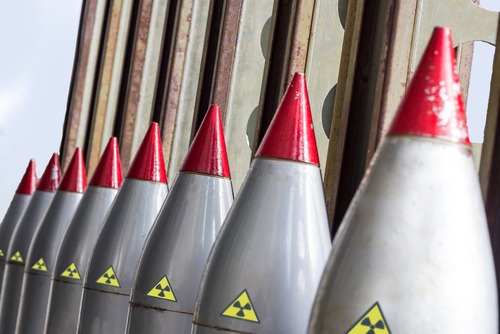
Last week, the Nuclear Threat Initiative (NTI) gathered more than 40 scientists and researchers from various fields and nations for a hybrid virtual-and-physical conference on the potential cascading effects of a nuclear conflict.
Food security, supply chain resilience, and disaster management were all on the table. Scientists also worked to fill in the knowledge gaps surrounding how a nuclear detonation or war could impact human survival and global civilization.
“Heat, blast, radiation, and mushroom clouds are all in the popular lore, following [the nuclear explosions that] occurred in Japan in 1945,” NTI Co-Chair and CEO Ernest Moniz said. “But we think the estimates of the consequences of a nuclear conflict are outdated and underestimated.” The limited body of modern research that exists on nuclear effects suggests that a nuclear conflict could yield mass starvation, economic collapse, and the end of modern civilization as we know it, the result of multiple, cascading crises and limited resources for individuals, governments, and societies to coordinate and respond.”
A nuclear war would likely result in a whole new global order, following diverse, catastrophic, cascading effects. More than 40 researchers gathered to address this over two days, tossing out what Francesca Giovannini, principal investigator for the Research Network on Rethinking Nuclear Deterrence, called a very sanitized tradition of discussing nuclear risks and instead focusing on the consequences in human costs. Attendees reiterated that the effects of nuclear war could be catastrophic but also difficult to predict.
“Decision-makers around the world need to understand this, certainly before they would contemplate any sort of nuclear use,” Page Stoutland, a consultant for NTI’s Scientific and Technical Affairs program, said. “We also believe that having a better understanding of the potential global effects will serve to accelerate all threat-reduction efforts.”




